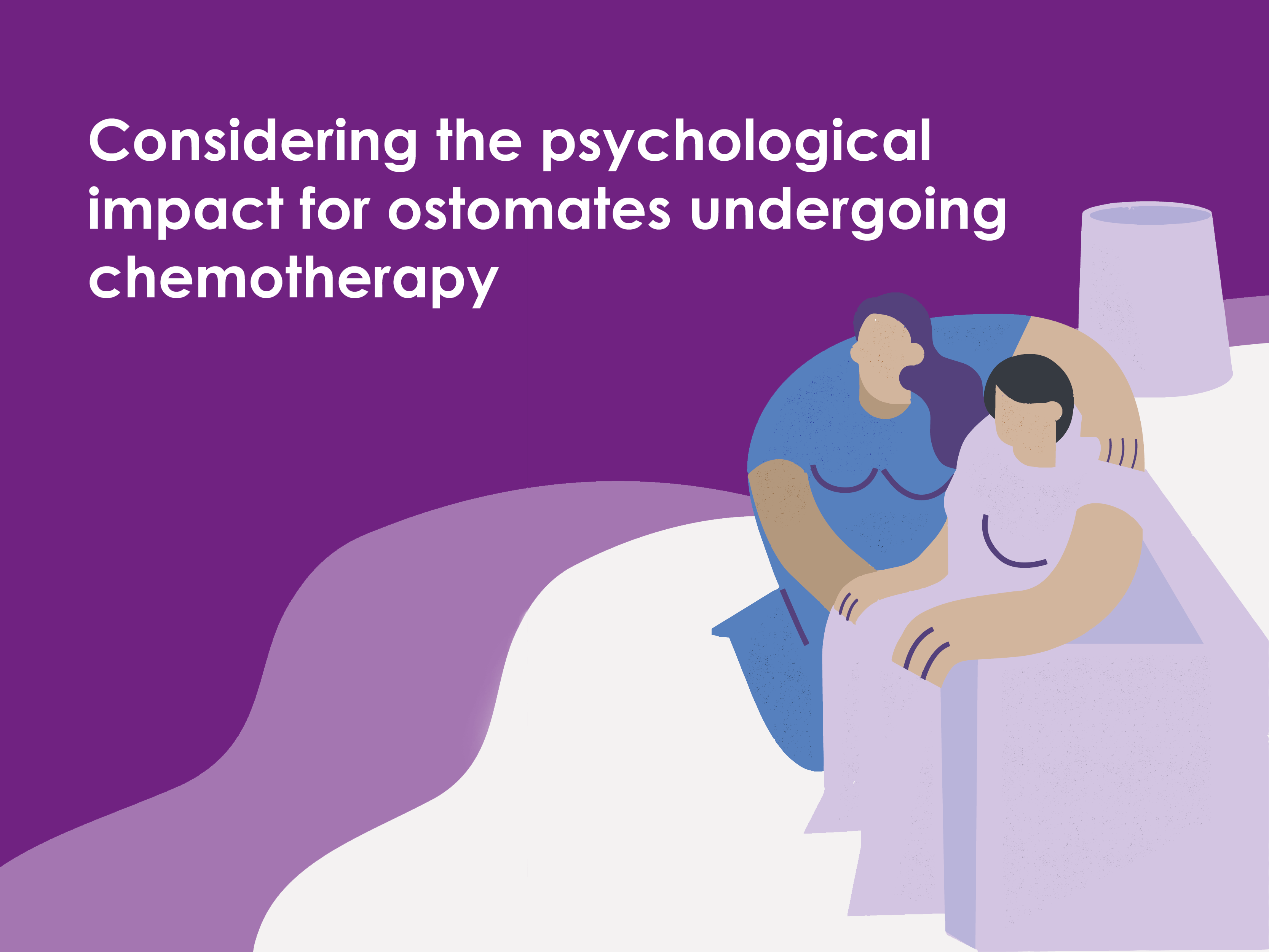 US
US


Considering the psychological impact for ostomates undergoing chemotherapy


A recent cancer diagnosis combined with a newly created stoma may often feel overwhelming. Many will also feel anxiety and fear about whether treatments will work and ultimately their long-term survival.
As many as 1 in 4 people with cancer will develop depression.1 Changes in body image, sexual concerns, financial and economic concerns may lead to loss of confidence, increased anxiety, and depression. Physical challenges during cancer treatments such as purging, loose stool and possibly dexterity issues may lead to further anxiety.
We can empower our patients by highlighting potential stoma management complications early in their journey. Educating patients to identify, resolve, and even prevent issues sooner rather than later will improve self-efficacy and provide a greater sense of control.
A holistic approach to assessment, both mind and body, is crucial to meet patients’ individual needs and achieving optimum outcomes.
Helping to reduce stoma related anxiety:
Helping ostomates to build a secure reliable routine can be the first step in helping to reduce anxiety. Plus it can help them feel empowered that they can manage their routine even during chemotherapy challenges:
- Easy to use products particularly for patients with dexterity issues is essential.
- Routine use of an absorbent, resilient ostomy seal during chemotherapy cycles
- Pouches that can adapt to altered routines

Helping to reduce emotional anxiety:
It would be wrong not to mention emotional anxiety that an ostomate may also be under. Many reasons were highlighted previously for emotional distress during this time and there’s a few ways we can help our patients to share how their feeling or small tactics for coping:
- Sharing fears and anxieties with friends and family can be helpful.
- Or, if they prefer to ostomy or cancer support groups or local charities can offer support, guidance or just a listening ear.
- Complimentary therapies – yoga, massage, meditation, and reflexology
- Physical activities or just getting a little more active can give a fresh perspective
- Listening to music can be calming or uplifting
- If money is a concern, signpost to support for financial and economic concerns

Encouraging those you care for to also speak to you or another healthcare professional about how they are feeling is also important. There is always someone to listen and help.

References
1. Cleveland Clinic https://my.clevelandclinic.org/health/diseases/5230-cancer-fatigue (accessed 22.10.21).
